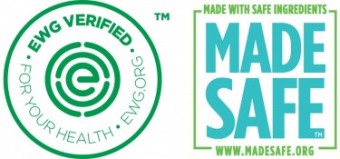
Labels Seek to Anoint Products Free of Toxic Chemicals
Internet entrepreneur and branding consultant Amy Ziff says she had to become a “weekend toxicologist” five years ago when she discovered her twins were allergic to diapers, baby wipes, creams and lotions.
She found herself researching the ingredients of consumer products to see if they could give her children rashes or blotchy skin. The experience led her to join the growing ranks of Americans concerned about potential carcinogens, endocrine disruptors and other harmful chemicals used in the manufacturing of common household goods.
February 25, 2016 | Source: Fair Warning | by Brian Joseph
Internet entrepreneur and branding consultant Amy Ziff says she had to become a “weekend toxicologist” five years ago when she discovered her twins were allergic to diapers, baby wipes, creams and lotions.
She found herself researching the ingredients of consumer products to see if they could give her children rashes or blotchy skin. The experience led her to join the growing ranks of Americans concerned about potential carcinogens, endocrine disruptors and other harmful chemicals used in the manufacturing of common household goods.
“I was horrified to find out all of the nasty things that can be included in our everyday products,” Ziff said. “It doesn’t matter whether you shop at the Dollar Store or Barneys.”
Next month, she and her new nonprofit, Made Safe, based in Irvington, N.Y., will unveil a seal of approval for consumer products that don’t use chemicals potentially unsafe for humans. In October, the Environmental Working Group, a prominent research and advocacy organization based in Washington, D.C., launched a similar label, called EWG Verified, targeting personal care products.
The competing labels are believed to be the first to specifically focus on a product’s impact to human health, filling a void left by regulatory agencies like the U.S. Food and Drug Administration and the Consumer Product Safety Commission, which have limited authority to police the ingredients used in household goods. The Environmental Protection Agency is responsible for regulating harmful chemicals under the Toxic Substances Control Act of 1976. But after 40 years, the agency has made little headway in reviewing possible health effects of the tens of thousands of chemicals in commercial use. Bills to reform the law have passed in both the House and Senate, though differences in the bills still must be reconciled.
